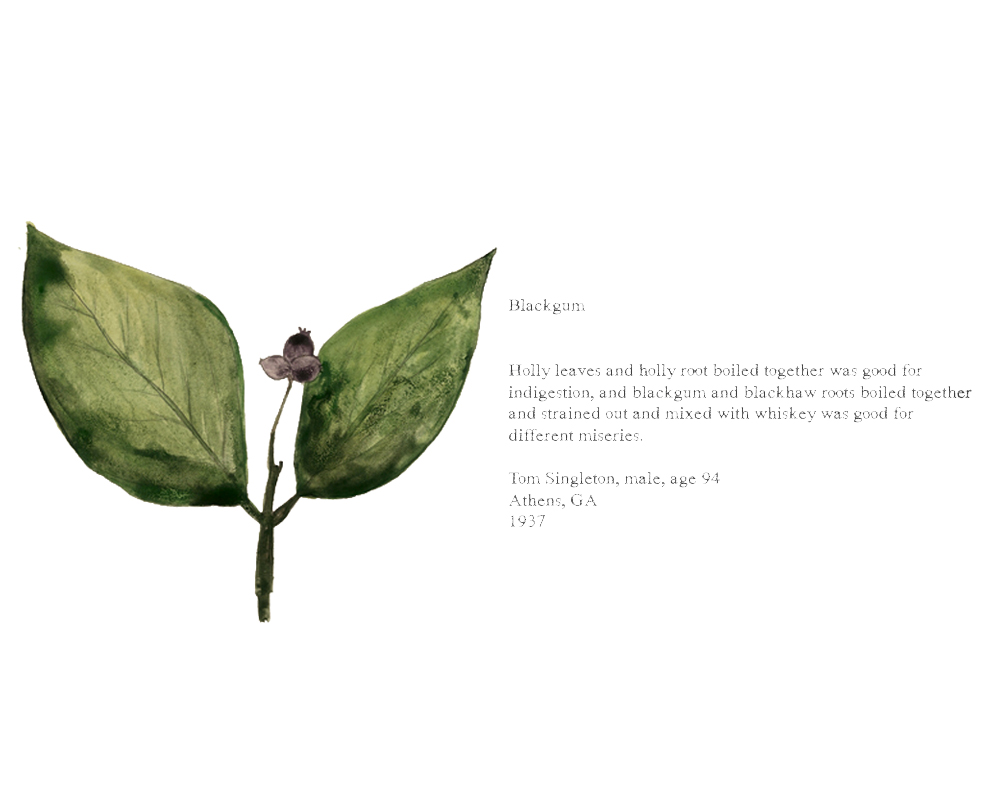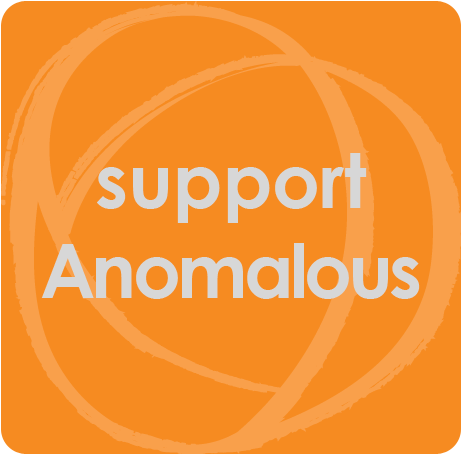The Recognitions: Plants as Medicine
Hope Hilton
Artist Statement
The South. Georgia. It’s where I grew up -- a tiny little town 30 minutes south of Atlanta named Flippen. My geography. I spent a lot of time running away from here, but I realized while living in Brooklyn and then San Francisco that there is no place like it. Red dirt and evergreens, farmland for miles, Southern drawls, grits, chickens, gardening, 35 cents for a Red Rock ginger ale. Also pornography magazines in the woods, dogs that bite, salvation, sweat, and danger.
And race.
The spring I landed in the countryside near Athens, Georgia, I read as much as I could about the history of my new place. 65 miles northeast of Atlanta the landscape changes. I’d never lived here before. My research until four years ago had encompassed my family history and the discovery of their slave-owning past. I’d walked and hitchhiked 60 miles with my brother to reimagine and honor the walk a slave named Henry took to announce the birth of my great-great-grandmother. I’d traveled to cemeteries and archives searching for the names of slaves and their burial sites to add to the history.
I read The Slave Narratives of Georgia soon after I arrived here, checked out from the tiniest library you’ve ever seen. Part of the wider mission of the Works Progress Administration created by President Franklin D. Roosevelt in 1935, the Federal Writers’ Project that created these narratives documented people all over the United States during the Great Depression.
Made up of first-hand interviews, these narratives are with ex-slaves who were alive to tell their stories. The transcripts describe everything from the land and the slaveholders to the customs, food, medicine, punishment, religion, work, and culture of US slavery. The accounts unfold to portray a rich oral history of the Georgia that I am most invested in: a true account of our past, the ugly and the glory. A recognition of all that went into making this place. A tiny hope toward reparations, where Black History is a part of popular history. There is plenty of criticism about this project. It came along with its own set of problems- namely that young, naive, and mostly white interviewers were engaging elderly Black Americans to discuss something that, at least in the history books, had been whitewashed to a point where the common conversation was that slaves had it good.
The accounts of slavery really struck me. I’m an educated white woman in my late thirties. Not only was I interested in the people and their stories, but what they discussed was an education to me. And what intrigued me most were the plants. Nearly every narrative named some kind of plant to cure an ailment. I realized that I didn’t know a damn thing.
I’d moved here and settled down in a reclaimed and refurbished farm house on nearly two acres covered in plants I knew nothing about. I’m still learning. I may get it wrong here and there. But this project was ignited by my willingness to learn and share about a nearly-gone way of life where people used what they had, and to understand the wisdom of my elders.
I’m drawing every plant mentioned that I can. Some are impossible to identify, and the vernacular used in the interviews is not as common today. I’m not doing this alone, as I’m enlisting pharmacists, herbalists, and keepers of history to collaborate with. I’m now not only learning about the plants that slaves used as medicine, but about the land of which I’ve made home.
This is a beginning.
Hope Hilton was born in 1977 in Atlanta, Georgia, USA. Hilton curates, collaborates, designs, publishes, writes, and walks. Recently completed projects include the writing of over 200 personal letters to anonymous participants for College of the Canyons, Valencia, CA, a Topophilia workshop with teens in Bonao, Dominican Republic, a project about her love of reading at The Kitchen, NYC as well as in Beit HaGefen Art Gallery, Haifa, Israel. She is an adjunct professor of Art Appreciation at Athens Technical College and Studio Manager for Hable Construction as well as a consultant for The Georgia Virtual History Project (virtualgeorgia.org). Hilton was awarded a grant in 2010 from the Forward Arts Foundation in Atlanta was a finalist for the Hudgen's Prize. Hilton resides in a crooked farmhouse on a hilltop near Athens, Georgia. hopehilton.com | therecognitions.org | field-work.org




